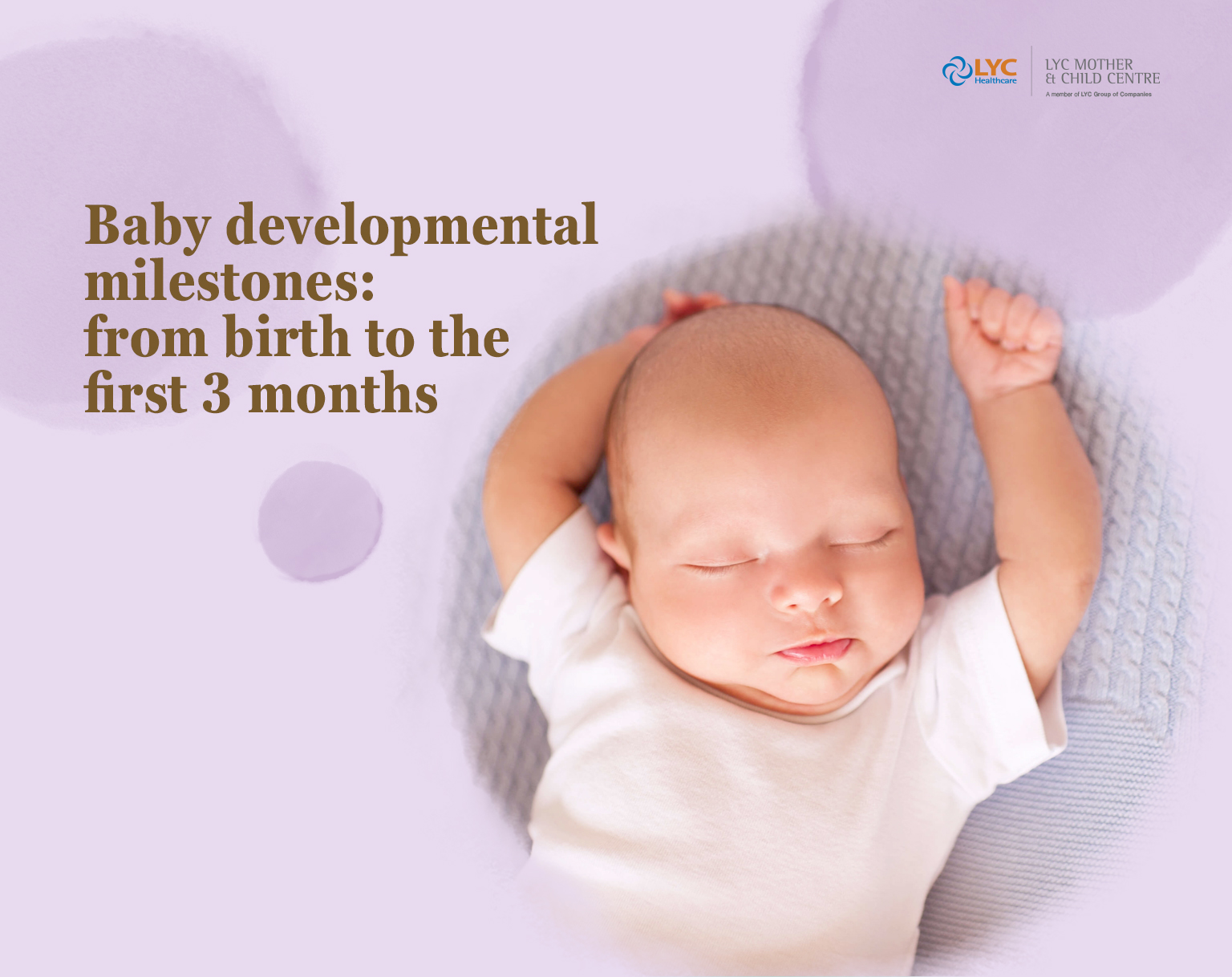
The development of a newborn baby begins at birth, and the first three months is a very important stage. During this stage, your baby will go through many developmental milestones, and it is important for new parents to understand these processes so that any problems can be detected and acted on in time.
Caring for your baby can feel like an endless cycle of feedings, diaper changes, and soothing, but it doesn't take long to spot signs of your baby's growth and development. While most babies will reach certain milestones at similar ages, every baby's development is unique. It is important to note that premature babies may reach certain developmental milestones later compared to babies born at full term.
During the first three months, your baby's motor skills develop rapidly. While a newborn baby's movements may be jerky, within the next two months most babies begin to control their movements and their necks grow stronger.
By two months, your baby should be able to support their head on their own. By the end of the third month, most babies can lift their head and chest with elbow support when in the prone position. During the same time, your baby will discover that they can open and shut their hands, and by the third month, your baby can grab toys and put them in their mouth.
Hearing is also an important sign of your baby's healthy development. Newborn babies can hear sounds but don't understand what those sounds mean. In the first month of life, babies begin to recognise familiar sounds and may show this by turning their heads.
By three months of age, your baby may respond excitedly to these sounds. Or may become quiet to listen to sounds. Therefore, it is very important for parents to talk to their baby often.
Your baby's eyesight also improves dramatically during the first three months. At this stage, babies can move their eyes to follow objects. Your baby will also be able to focus on further objects.
Around two months old, babies may begin to smile when others smile at them. By the end of the third month, your baby should be able to make eye contact with you, an important step in bonding.
To facilitate your baby's development, there are several ways to help your baby grow:
First, hold the baby. Skin-to-skin contact helps your baby's brain develop, while holding your baby makes them feel safe, secure and loved. Let your baby grab your fingers and touch your face, which can increase parent–child interactions.
Second, speak freely with your baby. When your baby looks at you, maintain eye contact, talk to your baby, and vary your expression and tone of voice. Simple conversations can lay the foundation for your baby's language development. Singing songs out loud, reading stories, and responding to your baby's coos and babble help with your baby’s language development.
Third, keep it interesting. Give your baby toys with different textures or bold patterns, briefly place your baby on the tummy and play, make funny noises, and encourage your baby to hold their head up, although many newborn babies feel fussy or restless when they are on their tummy. For the baby, everything is new, but it should be noted that your baby should not be overstimulated.
Fourth, respond quickly to crying. For most newborn babies, the frequency of crying peaks around six weeks after birth and then gradually declines. Parents must not think that too much attention will spoil the baby, and don't feel dejected. Responding to your baby in a timely manner helps to form a strong bond with your baby, and crying is one of the ways your baby processes emotions or expresses needs at this stage.